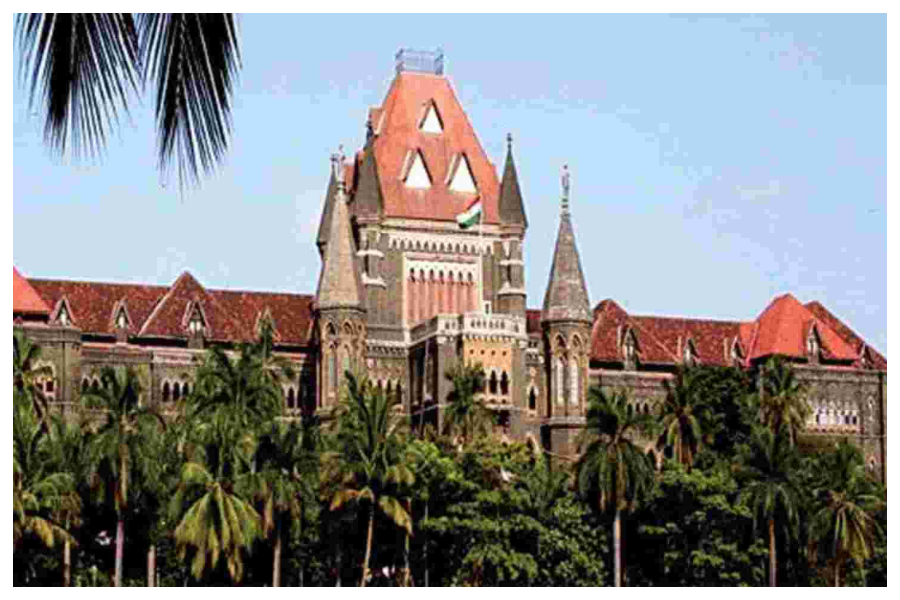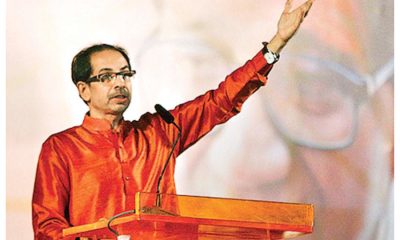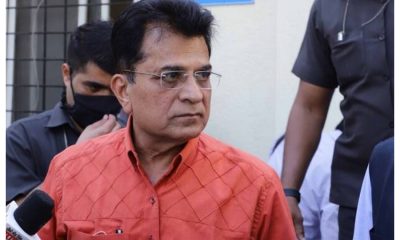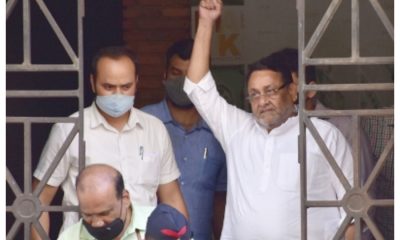Crime
Gag on POSH cases: After 6 months, Bombay HC says it’s ‘case specific’

Nearly six months after a complete ‘gag’ order to media reporting and uploading of judgements on cases pertaining to the Prevention of Sexual Harassment of Women at the Workplace (POSH) Act, 2013, the Bombay High Court has clarified that it was ‘case specific’ and not applicable to all matters under the (POSH) act.
Justice G.S. Patel, who had passed the earlier order of September 24, 2021, acknowledged that “it remained to be specifically noted in that order that “the directions had to be confined” to that particular case and could not have any wider or larger applicability.
Justice Patil further noted that any such rules of general applicability would have to be approved by the full court, and a single judge hearing a particular matter within his rostered assignment has “no authority or jurisdiction to issue any rules binding the entire court”.
“It is only the full court or the Chief Justice which or who can do that. Very possibly, such rules might even have been required to be notified in the official gazette. None of this was in contemplation at any time on September 24, 2021,” Justice Patil added.
The clarifications came on Thursday while disposing an intervention application filed by the Forum Against Oppression of Women under the impressions that the guidelines were general in nature.
FAOW senior advocate Indira Jaisingh contended that these guidelines were not only against the letter and spirit of the POSH Act, but also contrary to the very concept of open courts, which are an essential aspect of judicial determinations globally, and now it was being cited by men in other cases.
In the previous order (IANS – Sept 27, 2021), Justice Patel had said all such matters shall be heard either “in camera” or in the judge’s chambers, orders cannot be passed in open court, or uploaded on the high court’s official website, and the media has been prohibited from reporting the proceedings or the verdicts without the court’s permission.
Virtually making POSH cases at par with the existing guidelines in rape cases, the order warned that violation of the same or publishing the concerned party’s names or other details, even if in the public domain, would be treated as contempt of court.
He observed that since there are no set guidelines for such matters, his initial order would set a working protocol for the future orders, hearings, case file management, and would be revised or modified, as needed.
The ‘minimum guidelines’ issued dealt with the format of filing orders in POSH cases, the filing protocols, grant of access by the registry, hearings, directions to the certified copy department, public access, breach, etc.
“Both sides and all parties and advocates, as also witnesses, are forbidden from disclosing the contents of any order, judgment, or filing to the media or publishing any such material in any mode or fashion by any means, including social media, without specific leave of the court,” the court said on the media disclosure part.
Justice Patel added that it was imperative to protect the identities of the parties from disclosure, even accidental disclosure in such proceedings, in the interests of both sides, and the endeavour would be to “anonymise the identities of the parties”.
The orders came in a hearing of a POSH case involving a major blue-chip company and its woman staffer — who was represented by advocate Abha Singh.
The other highlights were: Parties’ names shall be replaced with “A v B”, etc., the order will mention them as only ‘Plaintiff, Defendant No. 1, etc.’, no reference to any ‘personally identifiable information (PII) like email, mobile or phone numbers, addresses, etc,’ and ‘no witness names and addresses’ shall be mentioned.
All orders/judgements would be delivered in private, not in open court but only in the judge’s chambers or in camera, with online or hybrid facility not allowed, in the presence of the litigants and lawyers and others including most of the court staff to leave the court.
“Orders can’t be published without court’s direction, and if any order is to be released into public domain, it will require a specific order of the court. This will be on the condition that only the fully anonymised version of the order of judgement is let into the public domain for publication,” said Justice Patel in the earlier order.
It forbade both sides, all parties and advocates and witnesses from disclosing the contents of any order, judgment, or filing to the media or publishing any such material in any mode or fashion by any means, including social media, without specific leave of the court, as per the guidelines.
There are strict restrictions barring anyone other than the Advocate-on-Record to inspect or copy any filings/orders, the entire record will be kept sealed and not handed over to anybody without the court’s order, witness depositions would be strictly not uploaded under any circumstances, and so on.
Crime
CBI books CGST officer Ratiram Meena for amassing disproportionate assets

Jaipur, Nov 1: The Central Bureau of Investigation (CBI) has registered a case against Central Goods and Services Tax (CGST) Department Assistant Commissioner, Ratiram Meena, on charges of possessing assets disproportionate to his known sources of income.
According to officials, Meena had declared assets worth Rs 51.73 lakh as of August 2018. However, by August 2025, his wealth had increased to over Rs 4.08 crore, marking an eightfold rise in just seven years.
The CBI revealed that Meena served in CGST offices in Jaipur and Ahmedabad during this period. The investigation found that he allegedly acquired illegal assets worth Rs 2.54 crore, which is nearly 100 per cent more than his known income.
CBI sources said Meena allegedly operated several firms, LLPs, and companies under the names of his wife and son, which were used to divert and conceal illegal funds. Raids were conducted at multiple locations, including Jaipur, Ankleshwar (Gujarat), and Ahmedabad, leading to the recovery of gold and silver jewellery worth approximately Rs 35 lakh. Investigators also found that Meena and his family owned multiple immovable properties across Rajasthan, along with luxury vehicles such as a Porsche and a Jeep Compass.
Two bank lockers in the names of family members were also discovered, and the CBI is currently examining their contents. The case surfaced after the disproportionate asset-to-income ratio of the officer failed to be justified during a routine assessment. As per legal provisions, if a government officer possesses assets significantly exceeding their known income without a legitimate explanation, it is considered a case of illegal acquisition of wealth.
The CBI has launched a detailed investigation into Meena’s financial transactions, company records, locker contents, vehicle purchases, and property documents to trace the origin of the illicit assets.
Crime
Navi Mumbai: 2 Sentenced To Life Imprisonment In 2020 Rabale MIDC Murder Case

Navi Mumbai: The Additional District and Sessions Judge at Belapur has sentenced two accused to life imprisonment in connection with a 2020 murder case that occurred under the jurisdiction of the Rabale MIDC police station. The convicts have been identified as Jisat alias Jisan Siddiqui and Lakshmi Rupesh Waghe.
Investigation revealed that Lakshmi Waghe was in an illicit relationship with Jisan, and together they conspired to murder her husband, Rupesh Waghe, who had become an obstacle in their affair.
Lakshmi Waghe, a resident of the Rabale MIDC area, was living with Jisan Siddiqui, with whom she shared an extramarital relationship. Frequent quarrels over this issue led to Lakshmi and her husband living separately. In January 2020, Rupesh visited his wife’s house to meet their daughter and discovered that she was living with Jisan. Angered, he confronted Lakshmi, which enraged both her and Jisan. The duo first assaulted him with fists and kicks, after which Lakshmi attacked Rupesh on the head and limbs with an iron sickle. Jisan then threw a cement block at Rupesh, attempting to kill him.
Rupesh sustained severe injuries and was admitted to JJ Hospital in Mumbai for treatment, where he succumbed to his injuries during treatment. Following the incident, the Rabale MIDC police registered a case against Lakshmi Waghe and her lover Jisan alias Jisan Siddiqui under Sections 302 (murder), 307 (attempt to murder), 34 (common intention) of the Indian Penal Code, along with Sections 4 and 25 of the Arms Act, and arrested both the accused.
Then Police Inspector Anil Patil investigated the case and submitted the charge sheet to the Belapur Sessions Court. The trial was conducted in the court of Additional District and Sessions Judge P. A. Sane. During the hearing, Special Public Prosecutor Yogendra Patil presented strong arguments and credible witness evidence, which the court accepted. On October 28, the court convicted both accused and sentenced them to life imprisonment, along with a fine of Rs 500 each, and in default, one month of simple imprisonment.
Senior Police Inspector Sunil Waghmare and Crime PI Kalpana Jadhav supervised the case. Police Sub-Inspector Ghodke (paravi officer), Court Constable S.N. Kamble, Rajesh Salgar, and Police Constable S.T. Shinde played key roles in ensuring the conviction through their dedicated efforts.
Crime
Navi Mumbai: 70-Year-Old NRI From London Arrested For Raping & Molesting 10-Year-Old Girl

Navi Mumbai: A 70-year-old NRI from London, who enjoys a pension of 4000 pounds by the US government post retirement as a taxi driver there, has been arrested by the Anti Human Trafficking Unit (AHTU) of Navi Mumbai along with a lady whose 10-year-old daughter was frequently raped and molested by the NRI.
According to police, the NRI used to buy them monthly groceries and helped them rent out a house against a heavy deposit, due to which the mother used to force her daughter to stay with the accused man during his every visit to India. He was arrested after an early morning raid at his house at Taloja on Friday.
The arrested accused has been identified as Farooq Allauddin Shaikh (70), originally from Puducherry but currently residing in London with his family. Two years ago, Shaikh had purchased a flat in Sector 20, Taloja, and would visit every few months for a few days. Shaikh is settled in the US with his wife and three children- all married. His two daughters work with a solicitor in the US, while his son, who got married recently, is settled in Bangkok. “One of his daughters also has a 10-year-old daughter, and the victim whom we rescued is also a 10-year-old girl,” a police officer who is a part of the investigation said.
While he had also visited India in the month of August for a few days, this time, he came on October 25. And after coming, he purchased groceries for the house of the victim. As per the investigations till now, the accused had started sexually abusing the victim along with another 15-year-old girl known to the victim, around two years back. He had helped the family of the 10-year-old to procure a house on rent against a deposit of Rs 2.5 lakh.
The AHTU received information from a reliable source regarding the sexual abuse that had happened with the girl in his flat, following which the team decided to raid the flat. “We got to know that the girl was sent to his flat on Monday and Tuesday.
On Wednesday, she celebrated her birthday at his flat and on Thursday night again, the mother dropped the child off at his flat. She was supposed to come pick up the child at 7 am when she brings breakfast for the accused, and hence we had to raid the flat before that, and we planned the raid at 5 am,” the officer added. Senior Police Inspector Prithviraj Ghorpade, Assistant Police Inspector Yogesh Deshmukh, and officers Nilam Pawar and Sarita Gude raided Shaikh’s flat on Thursday morning and rescued the child.
The police found four sex toys and Viagra pills in his cupboard, and one sex toy on the dressing table. They also found bottles of liquor, which the victim claimed that she was made to drink every time he abused her. The accused had become acquainted with the victim’s mother, who worked as a domestic help in the building and started offering monetary ‘helps’ in return for having her daughter at his flat. Whenever Shaikh visited India, the woman would send her 10-year-old daughter to his flat under the pretext of playing, police said.
“Both, the mother and the man, have been produced before the court and remanded to police custody till November 4,” senior police inspector Pravin Bhagat from Taloja police station said. The child has now been handed over to the Child Welfare Committee (CWC). Both the accused have been booked under Section of BNS and POCSO.
-

 Crime3 years ago
Crime3 years agoClass 10 student jumps to death in Jaipur
-

 Maharashtra1 year ago
Maharashtra1 year agoMumbai Local Train Update: Central Railway’s New Timetable Comes Into Effect; Check Full List Of Revised Timings & Stations
-

 Maharashtra1 year ago
Maharashtra1 year agoMumbai To Go Toll-Free Tonight! Maharashtra Govt Announces Complete Toll Waiver For Light Motor Vehicles At All 5 Entry Points Of City
-

 Maharashtra1 year ago
Maharashtra1 year agoFalse photo of Imtiaz Jaleel’s rally, exposing the fooling conspiracy
-

 National News1 year ago
National News1 year agoMinistry of Railways rolls out Special Drive 4.0 with focus on digitisation, cleanliness, inclusiveness and grievance redressal
-

 Maharashtra12 months ago
Maharashtra12 months agoMaharashtra Elections 2024: Mumbai Metro & BEST Services Extended Till Midnight On Voting Day
-

 National News1 year ago
National News1 year agoJ&K: 4 Jawans Killed, 28 Injured After Bus Carrying BSF Personnel For Poll Duty Falls Into Gorge In Budgam; Terrifying Visuals Surface
-

 Crime1 year ago
Crime1 year agoBaba Siddique Murder: Mumbai Police Unable To Get Lawrence Bishnoi Custody Due To Home Ministry Order, Says Report






















